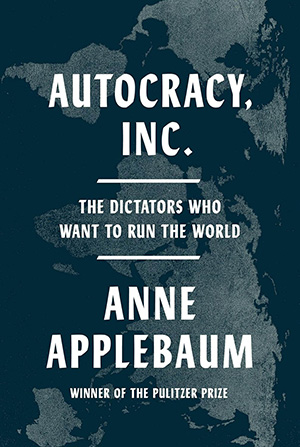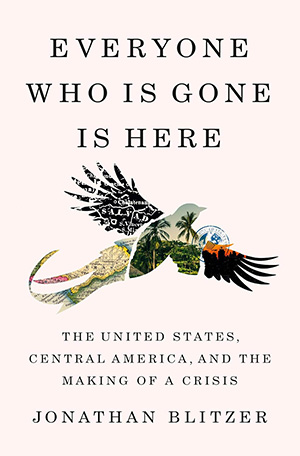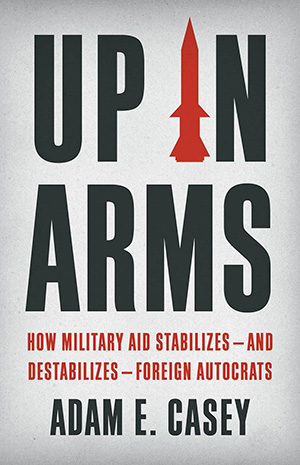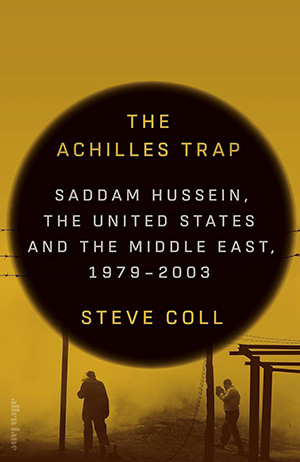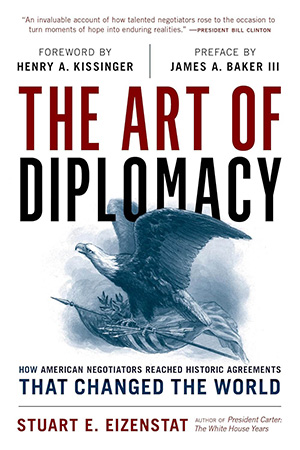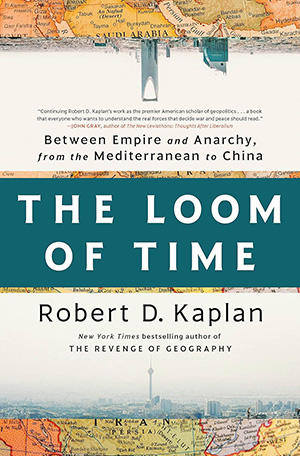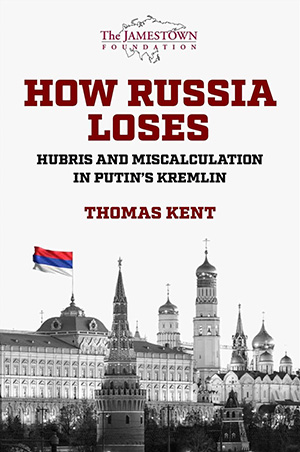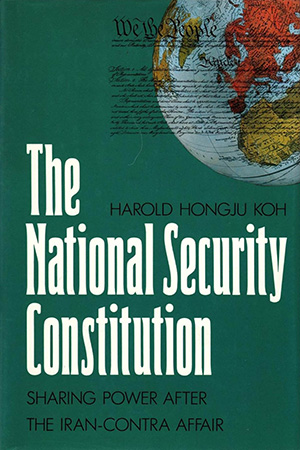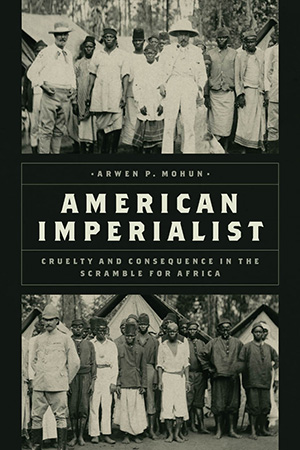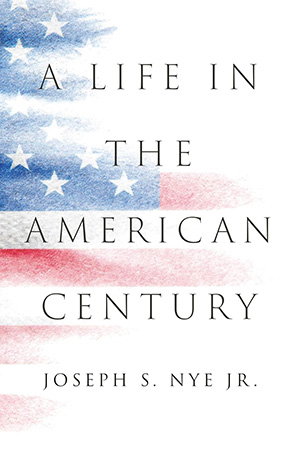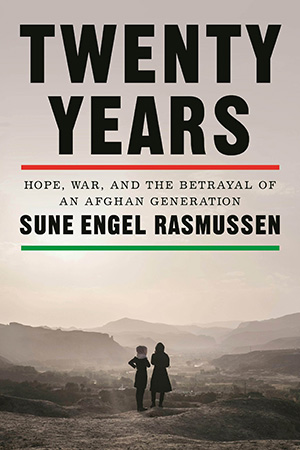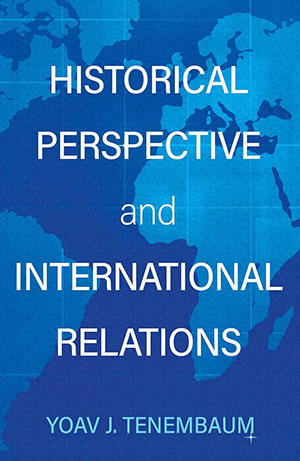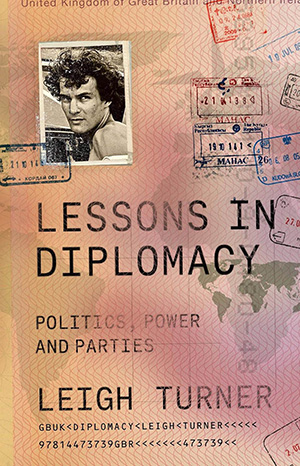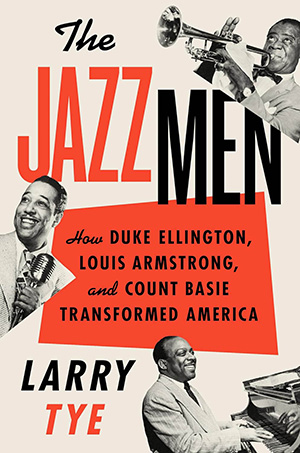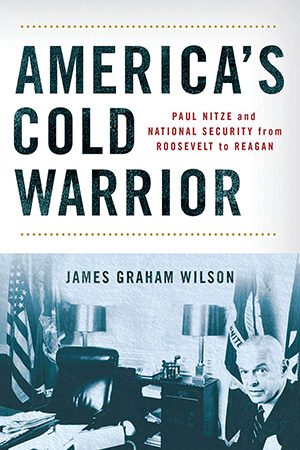Of Related Interest
Recent books of interest to the foreign affairs community.
Autocracy, Inc.: The Dictators Who Want to Run the World
Anne Applebaum, Doubleday, 2024, $27.00/hardcover, e-book available, 224 pages.
Anne Applebaum’s 2020 bestseller, The Twilight of Democracy, analyzed the growing appeal of autocracy to Western intellectuals and politicians. In her new volume, Autocracy, Inc., she trains her lens on the dictatorships—Russia, China, Iran, North Korea, Venezuela, and Zimbabwe, among others—that are working together (and with prominent American billionaires) to enhance their power and undermine the West.
General Mark Milley, former chairman of the Joint Chiefs of Staff, hails the book as “a wakeup call … for anyone interested in preserving the democratic values and culture that have been fought for at a high price in blood and treasure for over 200 years.”
After 17 years as a Washington Post columnist, Anne Applebaum became a staff writer at The Atlantic in 2020. She is the author of five critically acclaimed and award-winning books, including Gulag: A History, winner of the 2004 Pulitzer Prize for nonfiction.
Everyone Who Is Gone Is Here: The United States, Central America, and the Making of a Crisis
Jonathan Blitzer, Penguin Press, 2024, $32.00/hardcover, e-book available, 544 pages.
Not surprisingly, the ongoing migrant crisis at America’s southern border is one of the major issues in this year’s hotly contested presidential election.
As Jonathan Blitzer explains, the scale of the influx has soared in recent years, largely because so many desperate people have been uprooted from their homes in the Northern Triangle countries: El Salvador, Guatemala, and Honduras.
Everyone Who Is Gone Is Here documents how decades of misguided U.S. policy and sweeping regional corruption paved the way for the crisis. But Blitzer makes the story personal, telling it both through the eyes of those who have attempted the crossing and those on the other side of the border who have either helped them along the way or tried to prevent them from crossing.
Jonathan Blitzer is a staff writer at The New Yorker. He has won a National Award for Education Reporting as well as an Edward R. Murrow Award and was a 2021 Emerson Fellow at New America.
Up in Arms: How Military Assistance Stabilizes—and Destabilizes—Foreign Autocrats
Adam E. Casey, Basic Books, 2024, $32.00/hardcover, e-book available, 336 pages.
Debates about the utility and morality of security assistance date back to our founding, as Adam E. Casey points out in his introduction to this provocative book. The conventional wisdom is that military aid props up nondemocratic governments, but is this necessarily true?
Citing case studies ranging from Paraguay and Guatemala to Libya and Zaire (now the Democratic Republic of the Congo), among others, Casey says it isn’t true: “Aid, arms, and advisers do not just bolster dictatorships; they also transform them. And these transformations are not always beneficial for the stability of authoritarian regimes.”
A Wall Street Journal review calls Up in Arms “a methodical study that largely avoids moral posturing, especially about U.S. policies and decisions. That alone justifies taking it seriously.”
Adam E. Casey is a U.S. government analyst whose writing has appeared in The Washington Post, Foreign Affairs, and Foreign Policy. His research has been cited by The New York Times, The Economist, and Bloomberg, among others.
The Achilles Trap: Saddam Hussein, the C.I.A., and the Origins of America’s Invasion of Iraq
Steve Coll, Penguin Press, 2024, $35.00/hardcover, e-book available, 576 pages.
Countless books have been published in the two decades since the United States’ ill-fated decision to invade Iraq and depose Saddam Hussein. Most of these blame President George W. Bush and his administration for organizing a campaign to sell the war to the public, even though there was no evidence Hussein possessed any weapons of mass destruction.
Steve Coll’s contribution to the literature is to document the considerable role that Bush’s three predecessors played in paving the way for his colossal blunder. His title draws on Greek mythology to describe a situation in which the parties to a conflict imagine a “fatal flaw in their opponent that did not actually exist.”
Steve Coll is the author of nine books, including the Pulitzer Prize–winning Ghost Wars. He is an editor at The Economist, was a staff writer at The New Yorker for nearly two decades, and received a Pulitzer Prize for explanatory journalism in 1990 for his work at The Washington Post.
The Art of Diplomacy: How American Negotiators Reached Historic Agreements That Changed the World
Stuart E. Eizenstat, Rowman & Littlefield, 2024, $35.00/hardcover, e-book available, 520 pages.
The title of Stuart Eizenstat’s book implies that he is singing to the choir. After all, Foreign Service members presumably need little persuasion that diplomacy matters. So the question naturally arises: Why should we read The Art of Diplomacy?
First, it is gratifying to get the perspective of a political appointee who clearly respects career diplomats and has worked closely with them for decades. Eizenstat also offers helpful examples of the importance of preparation for negotiations.
As a bonus, the foreword by Henry Kissinger and preface by James A. Baker III are both worth reading in their own right.
Stuart E. Eizenstat has been the special adviser for Holocaust issues ever since the position was created in 2013. Prior to that, he served as U.S. ambassador to the European Union and deputy secretary of both State and Treasury. The author of several other books, he is an international lawyer in Washington, D.C.
America’s Collection: The Art and Architecture of the Diplomatic Reception Rooms at the U.S. Department of State
Virginia B. Hart, Rizzoli, 2023, $100.00/hardcover, print only, 352 pages.
There is no getting around the fact that $100 is a hefty price tag for a book, even one as handsome as America’s Collection: The Art and Architecture of the Diplomatic Reception Rooms at the U.S. Department of State. On the other hand, given ever-tighter security, a coffee-table volume is probably the only way for most Americans to see the treasures housed in the Diplomatic Reception Rooms on the building’s seventh and eighth floors.
With a foreword by former Secretary of State John F. Kerry, the book offers essays by noted experts who detail how the collection was formed and how it came to be displayed as it is, before focusing on highlights of the collection.
Reviewing America’s Collection in the April 2024 FSJ, Jane Loeffler writes this “well-illustrated volume would be a welcome addition to any library that features American art.”
Virginia B. Hart is the director and curator of the Diplomatic Reception Rooms at the State Department.
The Loom of Time: Between Empire and Anarchy, from the Mediterranean to China
Robert D. Kaplan, Random House, 2023, $30.00/hardcover, e-book available, 400 pages.
Despite its poetic title, The Loom of Time makes the case for realism in foreign policy. Specifically, Robert D. Kaplan casts a skeptical eye on the West’s efforts to promote democracy across the Middle East and to counter China’s spreading influence there.
Kaplan reminds readers that “the tragedy of the Greater Middle East ever since the collapse of the Ottoman Empire has as much to do with the West’s dynamic interaction with it as with the region itself.” He views the region as “the puzzle piece that China needs to command … to link its budding commercial outposts in Europe with those in East Asia.”
Robert D. Kaplan is the bestselling author of 22 books on foreign affairs and travel, which have been translated into numerous languages. He holds the Robert Strausz-Hupé Chair in Geopolitics at the Foreign Policy Research Institute, and Foreign Policy has twice named him one of the world’s Top 100 Global Thinkers.
How Russia Loses: Hubris and Miscalculation in Putin’s Kremlin
Thomas Kent, The Jamestown Foundation, 2023, $38.50/paperback, e-book available, 379 pages.
As Russian President Vladimir Putin’s invasion of Ukraine drags on, already more than halfway through a third year with no end in sight, there is no denying that he has inflicted major damage. But he also has not achieved any of his strategic objectives there—just one of many episodes Thomas Kent cites to support his thesis that, contrary to his fearsome reputation, Putin is far from a master of statecraft.
Reviewing the book for the Journal of Policy & Security, Michaela Dodge says: “Kent draws on his decades of experience and deep knowledge of Russia. Expert interviews provide additional nuance and depth to a complicated subject. Together, these elements make for a riveting read.”
Thomas Kent, a senior fellow at the Jamestown Foundation, lectures on disinformation and Russian affairs at Columbia University’s Harriman Institute. Previously, he served as Moscow bureau chief, international editor, and ethics editor for the Associated Press.
The National Security Constitution in the 21st Century
Harold Hongju Koh, Yale University Press, 2024, $40.00/hardcover, e-book available, 496 pages.
In 1988 the Yale Law Journal published Harold Koh’s “Why the President (Almost) Always Wins in Foreign Affairs.” Two years later, Yale University Press published a book-length version of that article, The National Security Constitution: Sharing Power After the Iran-Contra Affair.
So what is the National Security Constitution, and why has Harold Hongju Koh published an updated version of his analysis a third of a century later?
Koh’s concept asserts that “the power to conduct American foreign policy is not exclusively presidential, but is a power shared among the president, the Congress, and the courts.” Unfortunately, he adds, successive presidents “have repeatedly invoked an alternative vision of unchecked executive discretion.” This book examines that situation and recommends ways to restore constitutional balance.
Harold Hongju Koh is the Sterling Professor of International Law and former dean at Yale Law School, and a former State Department legal adviser and assistant secretary of State for democracy, human rights, and labor. He is the author of nine books and numerous articles.
American Imperialist: Cruelty and Consequence in the Scramble for Africa
Arwen P. Mohun, University of Chicago Press, 2023, $30.00/hardcover, e-book available, 328 pages.
Strikingly, the title of this biography does not contain the name of its subject—even though it is the author’s own great-grandfather, Richard Dorsey Mohun. That editorial choice likely reflects the profound ambivalence Arwen Mohun feels about her ancestor.
There is no question that Richard Mohun facilitated the brutal exploitation of countless Africans during the late 19th and early 20th centuries. On the other hand, he does not seem to have carried any particular animus toward them; for him, it was just a job.
The Times Literary Supplement calls American Imperialist “compelling. … This page-turner should encourage more public interest in other U.S. imperialists, including Henry Sanford, who was instrumental in founding the [Congo] Free State. One also hopes that it will stimulate more work on the African collective memory of such imperialists, to assess the lasting consequences of their nefarious actions.”
Arwen P. Mohun, a history professor at the University of Delaware, teaches and writes about capitalism, technology, and gender in American history.
A Life in the American Century
Joseph S. Nye Jr., Polity, 2024, $29.95/paperback, e-book available, 254 pages.
Long renowned for his expertise on the theory and praxis of statecraft and foreign policy, Joseph Nye has published dozens of well-received books and countless articles over the years. His latest volume, A Life in the American Century, is a memoir tracing his rise to the halls of power and influence.
Reviewing the book in the October 2024 FSJ, Joseph Novak lauds Nye’s “ability to deftly interweave the details of his personal journey around brief accounts of the epoch in which he lived.”
Joseph Nye Jr. is University Distinguished Service Professor Emeritus and former dean of Harvard’s Kennedy School of Government. He also served as assistant secretary of Defense for international security affairs, chair of the National Intelligence Council, and a deputy under secretary of State, and won distinguished service awards from all three agencies.
Military Guide to the U.S. Embassy
Center for Army Lessons Learned, 2023, free PDF, 53 pages.
The poet Robert Burns once wrote: “Oh, would some Power give us to see ourselves as others see us!” Answering that plea by diplomats, the Center for Army Lessons Learned has issued this Military Guide to the U.S. Embassy “to improve Department of Defense interactions with Foreign Service professionals.”
The book’s five chapters also discuss the agencies’ role in crafting the U.S. National Security Strategy, concluding with a list of ways DoD personnel can successfully integrate into, and communicate with, U.S. embassy country teams.
The Center for Army Lessons Learned leads the U.S. Army’s Lessons Learned Program, delivering timely and relevant information to resolve gaps, enhance readiness, and inform modernization. The guide can be downloaded at https://bit.ly/Military-Guide-to-Embassies.
Beyond the Water’s Edge: How Partisanship Corrupts U.S. Foreign Policy
Paul R. Pillar, Columbia University Press, 2023, $35.00/hardcover, e-book available, 328 pages.
Many FSJ readers probably know the 19th-century aphorism that “even our party divisions, acrimonious as they are, cease at the water’s edge.” But as Paul Pillar documents in Beyond the Water’s Edge, it has often been a mere aspiration, if that. And that, Pillar warns, “is a perversion of the constructive role of political parties in articulating competing interests and grand strategies.”
Reviewing the book in the June 2024 FSJ, retired FSO Joseph L. Novak commends Pillar for sending up “a flare on the threat posed to U.S. national security by extreme political polarization.”
Paul R. Pillar is a nonresident senior fellow of the Center for Security Studies at Georgetown University and a nonresident fellow at the Quincy Institute for Responsible Statecraft. He served in several senior positions in the U.S. intelligence community and is a retired officer in the U.S. Army Reserve.
Twenty Years: Hope, War, and the Betrayal of an Afghan Generation
Sune Engel Rasmussen, Farrar, Straus & Giroux (FSG), 2024, $30.00/hardcover, e-book available, 352 pages.
Pushing back against our collective amnesia about the chaotic 2021 American withdrawal from Afghanistan, journalist Sune Engel Rasmussen’s new book tells the story of Washington’s two-decade war from the point of view of the Afghans themselves.
Peter Bergen, the author of The Rise and Fall of Osama bin Laden, says: “Rasmussen’s coverage of Afghanistan has long been superlative. Now comes his excellent new book, which is deeply reported, well written, and moving, telling the story of America’s abandonment of the Afghan people. It’s a somber story that he tells very well.”
Sune Engel Rasmussen has reported on Afghanistan extensively for The Guardian and The Wall Street Journal, where he is now a correspondent who covers Afghanistan, Iran, and North European affairs. His work has also appeared in Harper’s, The Economist, National Geographic, GQ, Newsweek, and Time magazine.
Historical Perspective and International Relations
Yoav J. Tenembaum, Matador, 2023, $19.95/paperback, e-book available, 304 pages.
Yoav Tenembaum says this collection of short essays (most previously published) aspires “to combine the rigor of academic thought with the style of analytic journalism. The book, in a sense, is an intellectual hors d’oeuvre, a brief journey into the realm of history and international relations.”
Tenembaum’s second chapter, “Learning from History in Shaping Foreign Policy—A Theoretical Framework,” may be of particular interest to FSJ readers, given its focus on a distinction between “effective and deceptive analogies” when national leaders consider the role of history in the shaping of foreign policy.
Born in Argentina and now a resident of Israel, Yoav J. Tenembaum is a lecturer in international relations at Tel Aviv University. His publishing credits include a poetry anthology and a children’s book, as well as numerous articles in various periodicals.
Lessons in Diplomacy: Politics, Power and Parties
Leigh Turner, Policy Press, 2024, $29.99/hardcover, e-book available, 256 pages.
Lessons in Diplomacy lives up to the promise of its title by offering 15 chapters, each drawing on Leigh Turner’s extensive overseas experience to explain how to do just about everything involved in a diplomatic career: “survive a crisis,” “tackle terrorism,” “handle politicians,” “learn from diplomatic tradecraft,” and many others.
In his epilogue, “Top Tips for Diplomats and Ambassadors,” the author lays out the challenges diplomatic professionals face. He ends on an optimistic note: “The requirement for expertise in distant places, policies and peoples will persist. … A deep understanding of people and what makes them tick will never go out of fashion.”
Leigh Turner is a British writer and former diplomat. His final diplomatic role was as the British ambassador to Austria and U.K. permanent representative to the United Nations in Vienna from 2016 to 2021.
The Jazzmen: How Duke Ellington, Louis Armstrong, and Count Basie Transformed America
Larry Tye, HarperCollins, 2024, $32.50/hardcover, e-book available, 416 pages.
Larry Tye’s three-in-one biography of these great American musicians is full of colorful details about their lives and careers. But it is chapter 23, “Overseas Ambassadors,” that will be of special interest to Foreign Service readers.
Tye notes that “each of the maestros acted as an informal ambassador in mid-century, traveling to dozens of countries from Asia to Latin America and Europe. Over time, the State Department started picking up the tabs and setting itineraries that served political, as well as musical, objectives.”
Larry Tye is a bestselling author of eight books, including biographies of Joseph McCarthy and Bobby Kennedy.
America’s Cold Warrior: Paul Nitze and National Security from Roosevelt to Reagan
James Graham Wilson, Cornell University Press, 2024, $32.95/hardcover, e-book available, 336 pages.
Although he lived almost as long as George Kennan, Paul Nitze never quite achieved the fame of his coeval. But James Graham Wilson makes a compelling case in this biography that Nitze was comparably influential in U.S. diplomacy.
Perhaps best known for leading the formulation of National Security Paper 68 (“United States Objectives and Programs for National Security”) in 1950, he played a prominent role in negotiating arms control treaties with the Soviet Union some three decades later.
James Graham Wilson has been a supervisory historian at the State Department for more than 10 years, leading a team that compiles volumes for the Foreign Relations of the United States (FRUS) series, the official record of U.S. foreign policy.
When sharing or linking to FSJ articles online, which we welcome and encourage, please be sure to cite the magazine (The Foreign Service Journal) and the month and year of publication. Please check the permissions page for further details.

